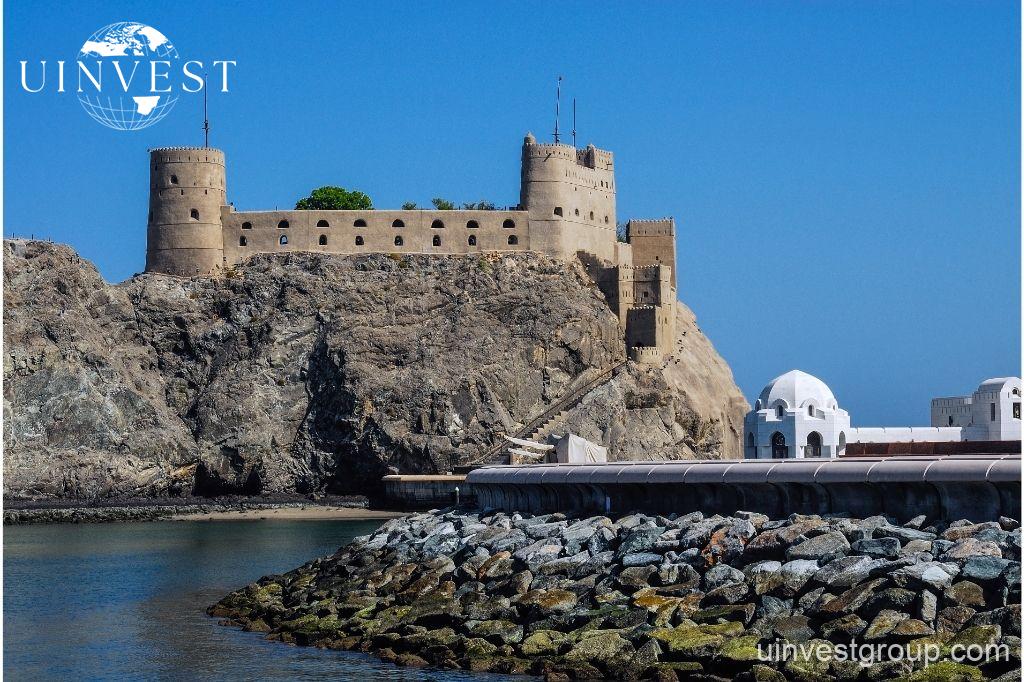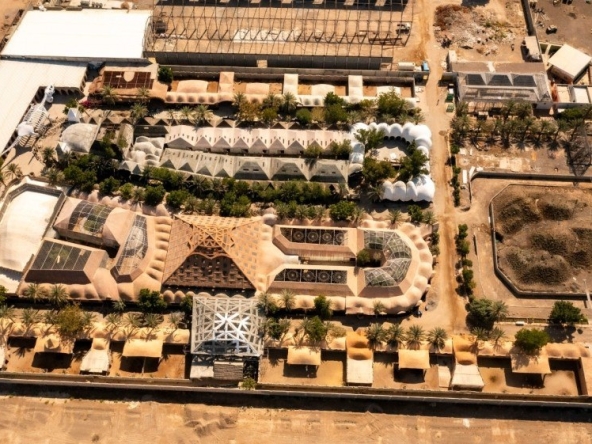Seeb is a fascinating city that is home to Oman’s historical and cultural riches as well as an immense culinary heritage. This unique destination opens its doors to travellers who want to discover traditional Omani flavours. Seeb attracts the taste buds with its many restaurants, cafes and markets known for their authentic and local flavours. While the streets of the city are filled with the smells of fresh spices, trying local flavours in the historical bazaars becomes a journey.
Seeb’s cuisine is characterised by a skilful blend of fresh seafood, spices, special sauces and local ingredients. In this article, we will provide a guide for those who want to discover the hidden culinary treasures of Seeb and taste the rich flavours of the city. Seeb invites those who want to discover the unique flavours of Oman on a journey of taste.
Harees
Harees is an important delicacy of Seeb cuisine and is prepared as a special dish during Ramadan. This dish contains wheat, meat (usually chicken or lamb), salt and water. The uniqueness of Harees lies in the fact that it is pureed through a long cooking process. This mixture is cooked slowly and stirred until a special consistency is obtained. Harees is flavoured with spices and served hot. Harees is at the heart of Seeb cuisine, a delicacy traditionally shared at communal meals and family get-togethers.
First, wheat and meat (usually meat on the bone) are combined and placed in a large pot. Next, water is added to the pot and the ingredients are slowly boiled over low heat, usually overnight. This process ensures that the wheat swells and the meat is fully cooked. The ingredients are constantly stirred and mashed to obtain the characteristic puree consistency of harees. Spices, usually salt and pepper, are added and the dish continues to cook until it reaches a fully combined consistency. Traditionally, Harees is usually consumed as a special delicacy during Ramadan, but it is also popular for weddings and other special occasions. Harees is known for its nutritious and satiating properties and is considered a rich and traditional part of Middle Eastern cuisine.
Makbous
Makbus is one of the traditional rice dishes of Seeb and is prepared with chicken or lamb. In addition to rice, it contains vegetables, spices and local flavours. One of the distinctive features of Makbüs is the spice mixture used. This mixture allows the meat to cook and the spices to penetrate the meat. Then, washed and drained rice is added and the mixture is poured with boiling water or broth. All ingredients are mixed well and the mixture is cooked over low heat with the lid on the pot. After the pilaf is cooked, add roasted almonds, pistachios or currants. Spices such as cumin, cinnamon and saffron add a rich and characteristic flavour to the dish. Makbüs, which is usually served in large plates, is an indispensable dish for special occasions, invitations or celebrations when the family gets together.
Grilled Fish
Grilled Fish places a special emphasis on seafood cuisine due to Seeb’s status as a coastal city. Grilled fish is prepared with freshly caught seafood and flavoured with special spice mixtures and marinades. The fish varies according to the season and has a wide variety. Grilled fish served in local restaurants is served with fresh lemon, greens and special sauces. Experiencing this flavour in seaside venues is an excellent opportunity to discover Seeb’s unique seafood culture.
Omani Shuwa
Omani Shuwa is one of the most traditional and special flavours of Seeb cuisine. This dish, which is usually prepared on special occasions, weddings or festivals, is made of lamb. The preparation process involves a long and meticulous process. Lamb meat is blended with spices and special sauces, placed in a large earthen pit and then covered with earth and slowly cooked for long hours. The resulting Shuwa is a tender and flavourful dish where the spices penetrate deeply while the meat retains its flavour. Shuwa is served with rice, dates and special sauces.
Luqaimat (Sweet Dumplings)
Luqaimat are small and sweet dough balls that occupy an important place in the dessert world of Seeb cuisine. This snack is a traditional dessert made on holidays, special occasions or celebrations. Luqaimat dough contains flour, yeast, milk and sugar. The dough is cut into small pieces, fried in golden hot oil and then dipped in a special sugar syrup.
The fried dough is placed on a paper towel to drain off the excess oil. On a separate side, prepare the sugar syrup, which is usually made by mixing water, sugar and lemon juice, and pour it over the fried dough to sweeten the dessert. As a finishing touch, it is garnished with ingredients such as coconut, sesame seeds or various confectionery grains according to the recipe. Luqaimat offers a sweet experience with its crispy outer layer and soft texture inside. It is usually served sprinkled with sesame or coconut.
Omani Dates
Omani Dates, The fertile soils of the Seeb region offer a particularly favourable climate for growing dates. Therefore, Omani Dates are among the traditional flavours of the region. Omani dates are large, fleshy and delicious. Although there are different types, the soft and sweet ones, such as Medjool dates, are often preferred. These delicious dates are usually consumed during traditional coffee hours, special events or just as a snack. Speciality sweets and confectionery made from Omani dates also reflect the region’s rich sweet heritage.




